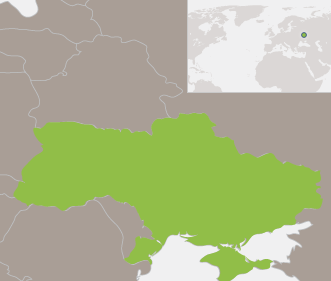With an academic specialization in Eastern Europe, coupled with training as a comparativist, I am admittedly predisposed to the region. My short argument is that I believe Eastern Europe can keep any scholar engaged in our pursuit of the universal lessons to be drawn from specific cases. In that vein, recently I had the chance to work with the Geneva Centre for the Democratic Control of Armed Forces (DCAF) to edit the Almanac on Security Sector Governance in Ukraine 2012. Ukraine’s experiences - told by those with first-hand knowledge of Ukraine’s progress and travails - hold much for policy-makers and practitioners engaged in promoting liberal security sector governance.
In its compact 148 pages, the Almanac covers a range of security sector governance (SSG) topics, including discussions of institutional change, the development of civilian capacity for oversight and control, and overcoming endemic corruption. These sections can and should be engaged. By fault of my own professional and academic interests, however, my attention goes automatically to any discussion of reform and oversight of the internal security apparatus. In addition to being notoriously challenging to study, I believe the institutions that constitute the internal security apparatus are a most reliable barometer of any country’s governance. Bolstering this assertion, among the Almanac’s most interesting works are:
- Oksana Markeyeva’s chapter, “Urgent Problems in Reformation of the Internal Affairs Entities in Ukraine’s Security Sector Reform,” where she concludes that, “Power structures are often viewed as an administrative resource not for social development but for taking and keeping power, with its further translation into different benefits for various business groups and individuals. This hinders society and state development…” (93).
- Oleksandr Skybinetskyi and Roman Marchuk’s “On the Issue of Intelligence and Law-Enforcement Bodies’ Reform.” They note that, “Reform of the Security Service has long been on the agenda…The issue of SBU [State Security Service of Ukraine] de-politicisation, prevention of abuse of the Service’s resources in the interests of separate political forces or individuals remains unresolved” (108).
- Oleksandr Belov’s chapter on the role of civilian experts in the community at large in shaping reforms and actions of the security sector. Belov describes the importance of a multiplicity of actors, including public organizations, independent think-tanks, experts, research institutes, and the mass media.
As these chapters demonstrate, Ukraine illustrates the vexing problem central to shaping and reforming internal security apparatuses to make them more consistent with international norms: how to change institutions that were so closely tied to the ancien régime while simultaneously ensuring the insularity that these entities by definition need. Ukraine, then, points yet again to the need for thoughtful and well-designed institutions, well-developed - and enforced - professional standards, and domestic and outside actors who can help keep egregious violations of civil and personal liberties at bay.
Joesph Derdzinski is a member of the SGG Expert Roster, and is currently a Visiting Associate Professor of Political Science at Colorado College. He is a former United States Air Force officer, and was a senior faculty member at the US Air Force Academy in Colorado Springs.





 Visit the Centre for
Visit the Centre for